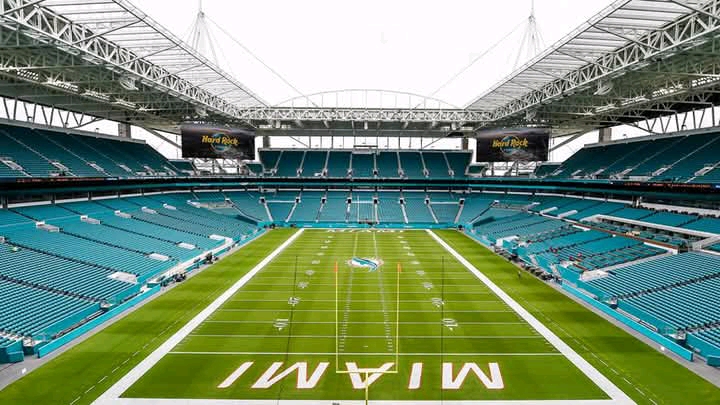Dolphins Unveil Major Hard Rock Stadium Redevelopment Plans with Expanded Capacity and Enhanced Fan Facilities… but One Unexpected Change Has Left Supporters Asking Questions
In a move hailed as a transformative moment for South Florida sports, the Miami Dolphins have officially announced a $900 million redevelopment plan for Hard Rock Stadium. The multi-phase project, set to begin construction in early 2026, will expand seating capacity from 65,000 to an NFL-leading 74,500, introduce state-of-the-art luxury suites, and modernize nearly every corner of the stadium — from restrooms to retail spaces.
Stephen Ross, the team’s longtime owner, unveiled the blueprint in a high-profile press conference flanked by team president Tom Garfinkel, NFL Commissioner Roger Goodell, and Miami-Dade Mayor Daniella Levine Cava. “This is more than just a facelift,” Ross declared. “This is about creating a world-class sports and entertainment complex worthy of our fans, our city, and the future of the game.”
Among the highlights: a new retractable canopy designed to provide better weather protection and enhanced acoustics, a groundbreaking fan plaza featuring interactive VR experiences, and a massive 360-degree jumbotron that will be the largest in pro football. Additionally, the redevelopment includes 5G-enabled smart seating, redesigned locker rooms, expanded concessions, and an all-new rooftop sky lounge offering panoramic views of the Atlantic.
However, one unexpected and controversial change has left fans buzzing — and not in a good way.
As part of a new sustainability initiative, the Dolphins plan to eliminate all traditional parking near the stadium, replacing it with a “Green Mobility Zone.” This zone will feature e-shuttle hubs, rideshare access points, bike lockers, and walkable promenades — but no on-site parking for private vehicles.
“It’s a bold step toward the future,” said Garfinkel. “We want Hard Rock Stadium to reflect Miami’s commitment to climate leadership.”
Still, the reaction has been mixed. Many longtime season ticket holders — especially older fans and those traveling from distant parts of the state — have raised concerns over accessibility and convenience. Social media erupted with the hashtag #WhereDoWePark, while local sports radio stations lit up with callers demanding the team reconsider.
Despite the pushback, construction will move forward. The Dolphins remain adamant the changes will usher in a “greener, smarter era” for fan experiences — though it remains to be seen whether diehard supporters are ready to embrace the ride.


